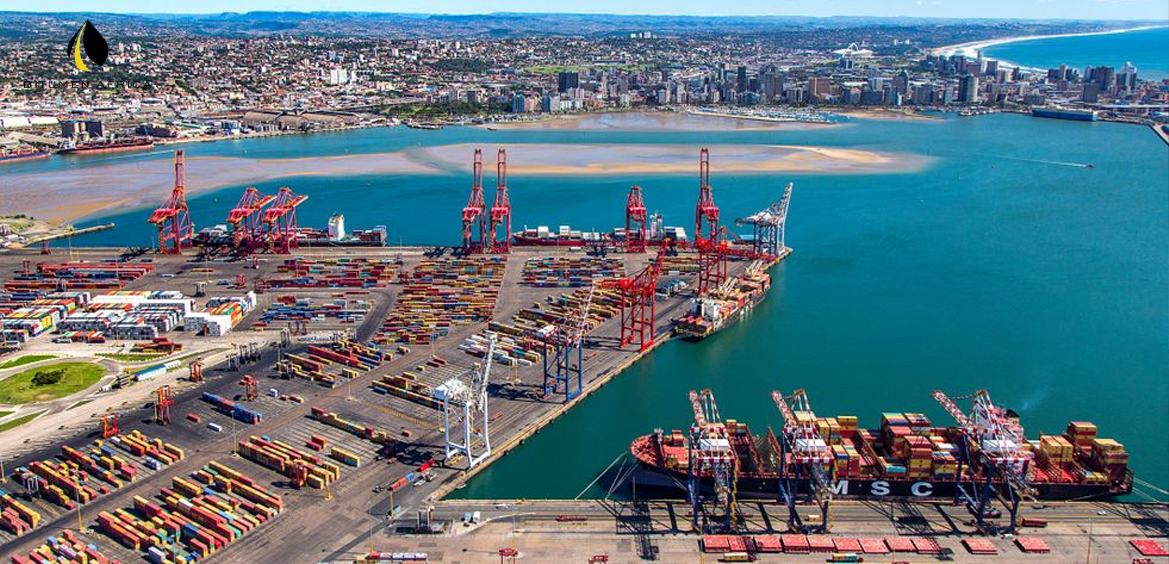As Africa continues to experience rapid economic growth and urbanization, infrastructure development has become a priority across the continent. At the heart of this transformation is bitumen, a critical material used in constructing roads and pavements. Bitumen Africa, a leading player in the industry, has capitalized on this growing demand by establishing strong export channels through key ports across the continent. This article explores the strategic importance of these ports in facilitating the export of bitumen and their role in Africa's broader economic aspirations.
See also: High Consumption Grades of Bitumen
The Rise of Bitumen Africa
Bitumen Africa has emerged as a major exporter of bitumen, primarily serving the infrastructure needs of African nations and global markets. The company’s presence spans the continent, with a well-established network that taps into Africa's rich bitumen resources. The export of bitumen is vital for developing roads and highways, enabling better connectivity, which in turn fuels economic growth, trade, and social development.
To ensure efficient export operations, Bitumen Africa has formed strategic partnerships with several key ports in Africa. These ports serve as vital hubs for the transportation and distribution of bitumen to international markets, especially in regions where demand for infrastructure is growing.
Key Ports in Exporting Bitumen in Africa Region:
- Port of Durban:
Durban port, as the busiest port in Africa and one of the most advanced ports, plays an essential role in the export of bitumen.
Primarily due to advanced infrastructure, deep berths, and efficient handling capabilities.
- Port of Mombasa, Kenya
- Significance: Kenya’s largest seaport and a major gateway for East Africa.
- Specialisation: Handles cargo for Kenya, Uganda, Rwanda, South Sudan, and the Democratic Republic of Congo (DRC).
- Port of Lagos, Nigeria
- Significance: One of the busiest ports in West Africa and Nigeria's main port.
- Specialisation: Petroleum exports, bulk cargo, and container shipments.
- Port of Abidjan, Ivory Coast
- Significance: A key West African port, central to the country's cocoa and coffee export.
- Specialisation: Containers, liquid bulk, and agricultural products.
See Also: Get to Know Biggest Road Construction Projects in Africa
- Port of Tanger Med, Morocco
- Significance: The largest port in the Mediterranean and Africa.
- Specialisation: Containers, transshipment hub, vehicle exports, and oil logistics.
- Port of Djibouti
- Significance: Essential for landlocked Ethiopia and a vital hub in the Red Sea.
- Specialisation: Transit trade for Ethiopia, handling container traffic and fuel imports.
- Port Said, Egypt
- Significance: Located at the northern end of the Suez Canal, it’s an important transshipment and logistics hub.
- Specialisation: Containers, petrochemical shipments, and logistics.
- Port of Luanda, Angola
- Specialisation: one of the largest in Central Africa, vital for Angola's oil exports.
- Specialisation: Oil, containers, and general cargo.
- Port of Dar es Salaam:
The Port of Dar es Salaam is one of the largest and busiest ports in East Africa. Located on the Indian Ocean coast of Tanzania, it plays a critical role in the regional and international trade routes, acting as a gateway for imports and exports for several landlocked African countries, such as Zambia, Uganda, Rwanda, Burundi, and the Democratic Republic of Congo.
Key Features:
- Strategic Location: The port is strategically located near the Indian Ocean, making it a crucial maritime hub for East Africa and providing easy access to major global shipping routes.
- Facilities and Infrastructure: The port has several terminals that handle a variety of cargo, including containers, dry bulk, and liquid bulk. It is equipped to handle large volumes of traffic and is undergoing expansions and modernization projects to improve its efficiency and capacity.
- Capacity: The port handles millions of tonnes of cargo annually, including fuel, grains, and construction materials like bitumen, which is critical for road construction and infrastructure projects in the region.
- Connectivity: Apart from sea routes, the port is well-connected via road and rail to neighboring countries, making it a vital point for trade, particularly for landlocked nations seeking access to international markets.
Importance for the Bitumen Africa ltd:
For companies like the Bitumen Africa , which deals in asphalt products for construction and road development, the Port of Dar es Salaam serves as the primary import and distribution hub. The port allows the company to receive shipments of bitumen from international suppliers and then distribute them efficiently to various project sites across East Africa. Given the high demand for road construction and infrastructure development in the region, the port's role is essential for keeping supply chains moving smoothly.
The port's growth and efficiency are critical for businesses relying on heavy and bulk materials like bitumen, especially as infrastructure development accelerates across Africa.
Challenges
Many African ports face infrastructure limitations, congestion, and inefficiencies, affecting their ability to compete globally. However, investments are being made to modernize and expand many ports to improve capacity and efficiency.
These ports are crucial to Africa's integration into global trade and the continent’s economic development.

